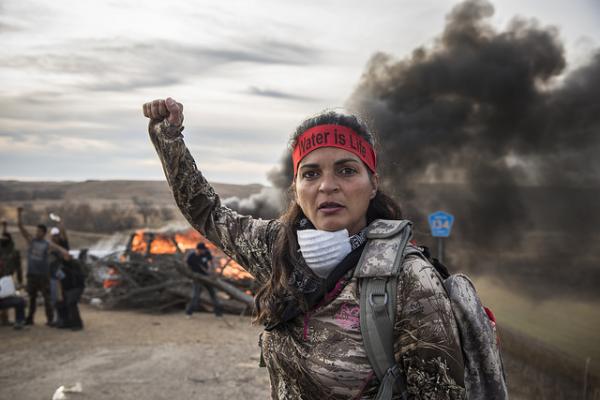Nov 21, 2016
On Nov. 20 protesters at the Dakota Access Pipeline were tear gassed and water hosed by law enforcement officials in the area, reports the Guardian. A video tweeted by the Indigenous Environmental Network shows water being sprayed on protesters in below freezing temperatures.
Read the Full Article

Already a subscriber? Login
